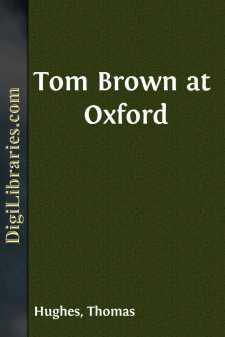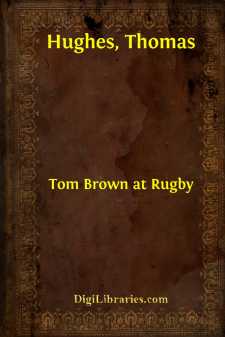Categories
- Antiques & Collectibles 13
- Architecture 36
- Art 48
- Bibles 22
- Biography & Autobiography 813
- Body, Mind & Spirit 142
- Business & Economics 28
- Children's Books 17
- Children's Fiction 14
- Computers 4
- Cooking 94
- Crafts & Hobbies 4
- Drama 346
- Education 46
- Family & Relationships 57
- Fiction 11829
- Games 19
- Gardening 17
- Health & Fitness 34
- History 1377
- House & Home 1
- Humor 147
- Juvenile Fiction 1873
- Juvenile Nonfiction 202
- Language Arts & Disciplines 88
- Law 16
- Literary Collections 686
- Literary Criticism 179
- Mathematics 13
- Medical 41
- Music 40
- Nature 179
- Non-Classifiable 1768
- Performing Arts 7
- Periodicals 1453
- Philosophy 64
- Photography 2
- Poetry 896
- Political Science 203
- Psychology 42
- Reference 154
- Religion 513
- Science 126
- Self-Help 84
- Social Science 81
- Sports & Recreation 34
- Study Aids 3
- Technology & Engineering 59
- Transportation 23
- Travel 463
- True Crime 29
Alton Locke, Tailor and Poet An Autobiography
by: Thomas Hughes
Description:
Excerpt
The tract appended to this preface has been chosen to accompany this reprint of Alton Locke in order to illustrate, from another side, a distinct period in the life of Charles Kingsley, which stands out very much by itself. It may be taken roughly to have extended from 1848 to 1856. It has been thought that they require a preface, and I have undertaken to write it, as one of the few survivors of those who were most intimately associated with the author at the time to which the works refer.
No easy task; for, look at them from what point we will, these years must be allowed to cover an anxious and critical time in modern English history; but, above all, in the history of the working classes. In the first of them the Chartist agitation came to a head and burst, and was followed by the great movement towards association, which, developing in two directions and by two distinct methods—represented respectively by the amalgamated Trades Unions, and Co-operative Societies—has in the intervening years entirely changed the conditions of the labour question in England, and the relations of the working to the upper and middle classes. It is with this, the social and industrial side of the history of those years, that we are mainly concerned here. Charles Kingsley has left other and more important writings of those years. But these are beside our purpose, which is to give some such slight sketch of him as may be possible within the limits of a preface, in the character in which he was first widely known, as the most outspoken and powerful of those who took the side of the labouring classes, at a critical time—the crisis in a word, when they abandoned their old political weapons, for the more potent one of union and association, which has since carried them so far.
To no one of all those to whom his memory is very dear can this seem a superfluous task, for no writer was ever more misunderstood or better abused at the time, and after the lapse of almost a quarter of a century the misunderstanding would seem still to hold its ground. For through all the many notices of him which appeared after his death in last January, there ran the same apologetic tone as to this part of his life's work. While generally, and as a rule cordially, recognizing his merits as an author and a man, the writers seemed to agree in passing lightly over this ground. When it was touched it was in a tone of apology, sometimes tinged with sarcasm, as in the curt notice in the "Times"—"He was understood, to be the Parson Lot of those 'Politics for the People' which made no little noise in their time, and as Parson Lot he declared in burning language that to his mind the fault in the 'People's Charter' was that it did not go nearly far enough." And so the writer turns away, as do most of his brethren, leaving probably some such impression as this on the minds of most of their readers—"Young men of power and genius are apt to start with wild notions. He was no exception. Parson Lot's sayings and doings may well be pardoned for what Charles Kingsley said and did in after years; so let us drop a decent curtain over them, and pass on."
Now, as very nearly a generation has passed since that signature used to appear at the foot of some of the most noble and vigorous writing of our time, readers of to-day are not unlikely to accept this view, and so to find further confirmation and encouragement in the example of Parson Lot for the mischievous and cowardly distrust of anything like enthusiasm amongst young men, already sadly too prevalent in England....





